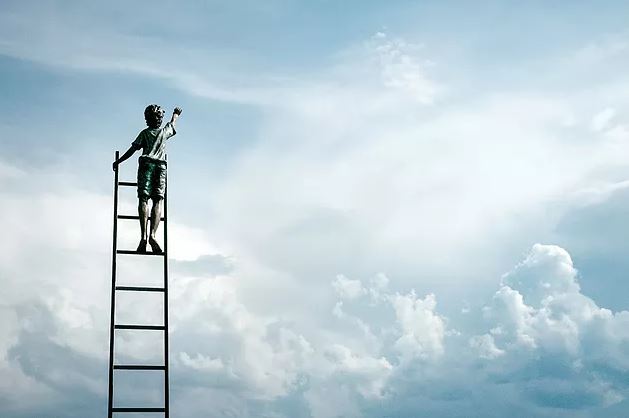By Philippa Rickard

As early-career researchers we navigate uncharted waters in the pursuit of a PhD. Really, that is the whole point of a PhD; to train us to push the boundaries of knowledge, and to ultimately produce a novel piece of work that expands current understanding and provides a stepping stone for further exploration (of a very niche area). All sounds very noble, doesn’t it?
In reality, postgraduate research is a juggling act. We are the whole package: laboratory technician, data analyst, teacher, writer, presenter, administrator, marketer… to name a few. And all of this before our career actually begins – make no mistake, a PhD is the bottom rung of a very rickety academic ladder. What awaits on the next rung is more of the same, yet with (hopefully) somewhat more attractive remuneration.
So, what? What about the next rung, and the rung after that? Where does your ladder lead?
In their 2017 Graduate Survey, Nature found that the future of early-career researchers is uncertain. It is well known that worldwide there are more PhDs produced annually than academic jobs available, but 75% of the 5,700 respondents stated that they will likely pursue an academic career anyway.
The sad reality is that only 3-4% of us will land a permanent academic position in the UK, even less in the US. A fact to which we seem blissfully unaware; nearly 60% of respondents see themselves finding a permanent non-trainee position within 3 years of completion. It is heartening that we remain passionate about what we do and want to continue doing it – that’s why we got ourselves into this in the first place, right? But do we need a reality check? Truthfully, the next rung is as wobbly as the one before.
Despite the insecurity, only 20% of respondents feel less likely to pursue a research career after embarking on a PhD. I am one of those 20%. I don’t have a postdoc plan. I’ve been told I should, but I don’t, and I like it that way. Right now, I am concentrating on the job in hand. Writing up my thesis. After that I will see where I am, how I feel, and what opportunities have come up along the way. Am I just another disillusioned PhD candidate or am I being realistic? After all being a scientist does mean having a healthy relationship with scepticism and evidence. Either way, don’t let me put you off. If you dream of that professorship, then get your head down, work hard and be lucky. But beware of tunnel vision. Gaining a PhD opens so many non-academic doors, there are other options and opportunities out there. Just look through the list of skills you have gained training as a researcher. Don’t be scared to explore them.
Nature articles:
Nature, 550, 429 (2017) doi:10.1038/550429a
Nature, 550, 549-552 (2017) doi:10.1038/nj7677-549a



